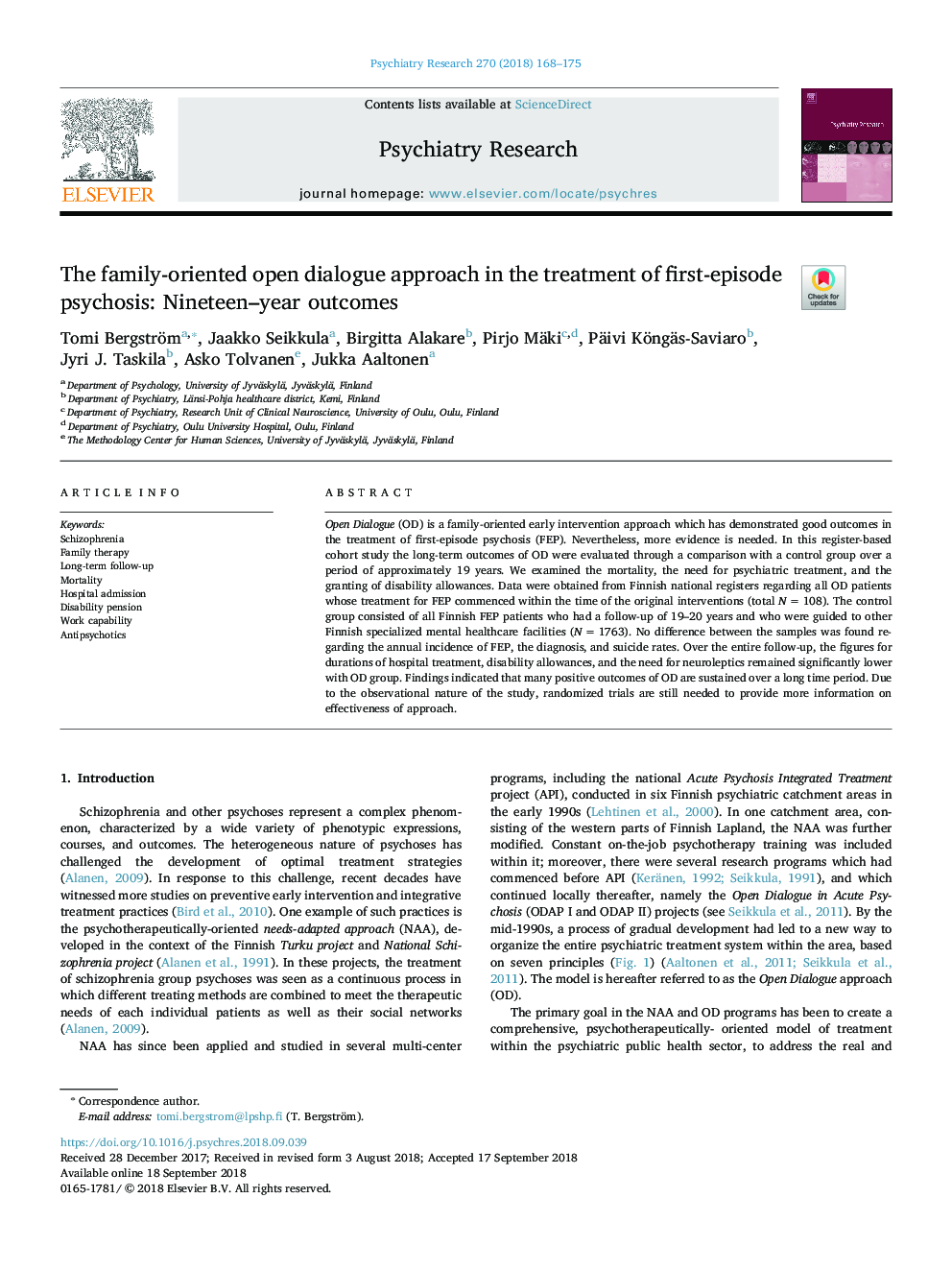| Article ID | Journal | Published Year | Pages | File Type |
|---|---|---|---|---|
| 10225507 | Psychiatry Research | 2018 | 8 Pages |
Abstract
Open Dialogue (OD) is a family-oriented early intervention approach which has demonstrated good outcomes in the treatment of first-episode psychosis (FEP). Nevertheless, more evidence is needed. In this register-based cohort study the long-term outcomes of OD were evaluated through a comparison with a control group over a period of approximately 19 years. We examined the mortality, the need for psychiatric treatment, and the granting of disability allowances. Data were obtained from Finnish national registers regarding all OD patients whose treatment for FEP commenced within the time of the original interventions (total Nâ¯=â¯108). The control group consisted of all Finnish FEP patients who had a follow-up of 19-20 years and who were guided to other Finnish specialized mental healthcare facilities (Nâ¯=â¯1763). No difference between the samples was found regarding the annual incidence of FEP, the diagnosis, and suicide rates. Over the entire follow-up, the figures for durations of hospital treatment, disability allowances, and the need for neuroleptics remained significantly lower with OD group. Findings indicated that many positive outcomes of OD are sustained over a long time period. Due to the observational nature of the study, randomized trials are still needed to provide more information on effectiveness of approach.
Keywords
Related Topics
Life Sciences
Neuroscience
Biological Psychiatry
Authors
Tomi Bergström, Jaakko Seikkula, Birgitta Alakare, Pirjo Mäki, Päivi Köngäs-Saviaro, Jyri J. Taskila, Asko Tolvanen, Jukka Aaltonen,
